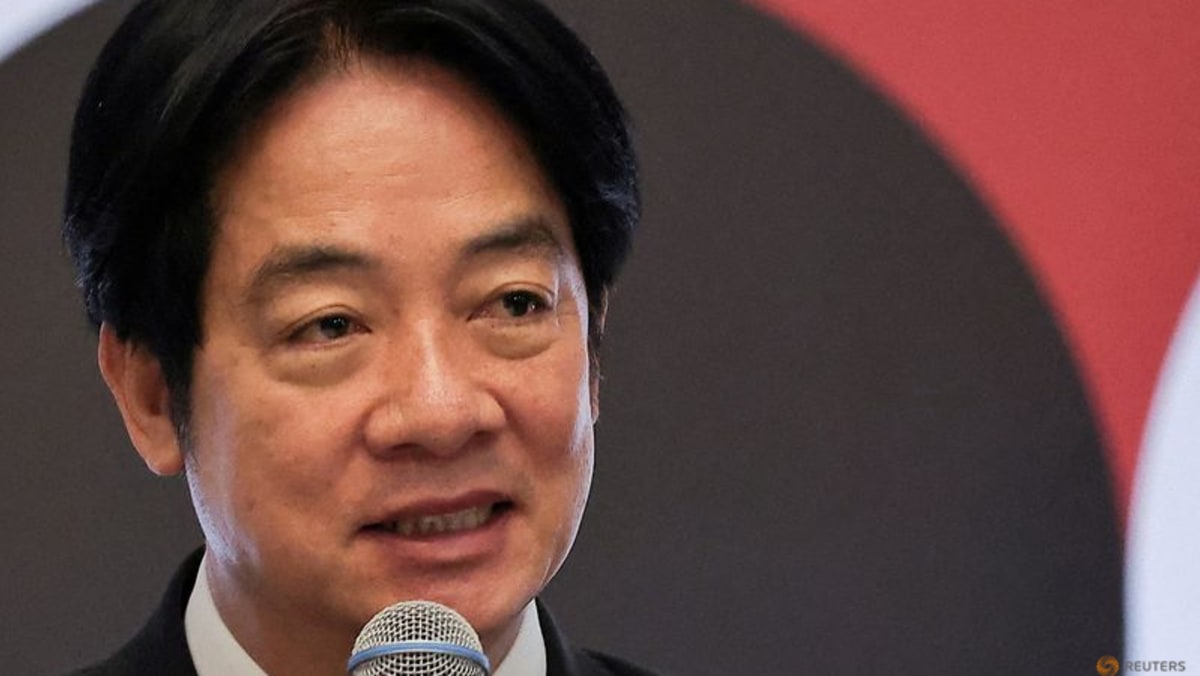Asia
Taiwan pledges chip talks with US, more investment to mollify Trump

The Global Importance of Taiwan’s Semiconductor Industry
Taiwan stands as a powerhouse in the global technology sector, primarily due to the presence of Taiwan Semiconductor Manufacturing Company (TSMC), the world’s largest contract chipmaker. TSMC is not just a key player in the industry; it is a linchpin for major tech giants like Apple and Nvidia, supplying them with the advanced semiconductors that power everything from iPhones to high-performance graphics cards. Beyond these household names, TSMC plays a pivotal role in the burgeoning artificial intelligence (AI) industry, providing the cutting-edge chips necessary for AI systems to function. This makes Taiwan indispensable in the global supply chain, particularly as the demand for advanced semiconductors continues to soar.
The significance of Taiwan’s semiconductor industry cannot be overstated. Semiconductors are the backbone of modern technology, enabling advancements in fields ranging from telecommunications to automotive systems. TSMC’s dominance in this sector ensures that Taiwan remains at the forefront of technological innovation. The company’s commitment to research and development, coupled with its state-of-the-art manufacturing facilities, has solidified its position as a leader in the global market. As the world becomes increasingly reliant on semiconductor technology, Taiwan’s role in this critical industry is set to expand even further.
A Thriving Trade Relationship with the United States
Taiwan’s economic ties with the United States are robust and continue to strengthen. In recent years, Taiwan has maintained a significant trade surplus with the U.S., which surged by an impressive 83 percent last year. This surge was driven largely by the overwhelming demand for high-tech products, particularly semiconductors, which are essential for a wide range of industries. Taiwan’s exports to the U.S. reached a record high of $111.4 billion, underscoring the island’s critical role as a supplier of advanced technology products.
The trade relationship between Taiwan and the U.S. is mutually beneficial. For the U.S., Taiwan serves as a reliable source of high-quality semiconductors, which are vital for maintaining its technological edge in fields such as AI, robotics, and defense. For Taiwan, the U.S. is not only a key market but also a crucial partner in terms of investment and economic collaboration. This partnership has been instrumental in driving Taiwan’s economic growth and cementing its position as a major player in the global tech industry.
Taiwan as a Reliable Trade Partner
According to Lai, the U.S. is Taiwan’s largest foreign investment destination, highlighting the deep economic ties between the two nations. Similarly, Taiwan has proven to be one of the most reliable trade partners for the U.S., consistently delivering high-quality products and maintaining a stable trade relationship. This mutual reliability has fostered trust and cooperation, creating a win-win situation for both economies.
The reliability of Taiwan as a trade partner extends beyond the economic realm. The island’s commitment to innovation and quality has earned it a reputation as a trustworthy supplier in the global market. This reliability is particularly important in the semiconductor industry, where consistency and precision are paramount. By maintaining high standards and adhering to international trade practices, Taiwan has solidified its reputation as a dependable partner for businesses and nations around the world.
growing Security challenges and the Need for Defense
Despite its economic strengths, Taiwan faces significant security challenges, particularly from China, which claims the island as its own territory. The Chinese government has been increasingly assertive in its claims over Taiwan, leading to heightened tensions in the region. This growing military threat has prompted calls for Taiwan to strengthen its defense capabilities and demonstrate its determination to protect its sovereignty.
In response to these challenges, Trump has criticized Taiwan for not investing enough in its defense. This criticism reflects broader concerns about the readiness of U.S. allies to shoulder the burden of their own defense. While Taiwan has historically maintained a relatively low defense spending ratio of 2.5 percent of its GDP, Lai has emphasized the need for the island to take greater responsibility for its security. The proposed increase in defense spending to 3 percent of GDP is a step in this direction, signaling Taiwan’s commitment to enhancing its military capabilities and ensuring its ability to defend itself against potential threats.
Taiwan’s Path Forward: Strengthening Defense and Solidifying Alliances
In light of the growing security challenges, Lai has called for Taiwan to demonstrate its resolve to defend itself. This resolve is not only about increasing military spending but also about fostering stronger alliances and partnerships with like-minded nations. By bolstering its defense capabilities and deepening its international relationships, Taiwan can enhance its ability to deter aggression and maintain its sovereignty in the face of increasing pressure from China.
The proposed special budget to boost defense spending is a significant step in this direction. By allocating more resources to its military, Taiwan can modernize its forces and improve its readiness to respond to potential threats. This move is also likely to be viewed positively by the U.S. and other key allies, reinforcing Taiwan’s position as a reliable and committed partner in regional security.
Conclusion: Taiwan’s Strategic Importance and the Path to Resilience
In conclusion, Taiwan’s importance extends far beyond its economic prowess as a semiconductor powerhouse. The island’s strategic location, commitment to innovation, and strong trade relationships make it a critical player in the global economy and geopolitical landscape. However, the growing threat from China necessitates that Taiwan take proactive steps to enhance its security and solidify its international alliances.
By increasing defense spending and demonstrating a strong commitment to self-defense, Taiwan can build a more resilient and secure future. This not only benefits the island but also contributes to the stability of the Indo-Pacific region and the global economy. As Taiwan continues to navigate the complex challenges ahead, its ability to balance economic growth with strategic security will be crucial in maintaining its position as a key player on the world stage.











